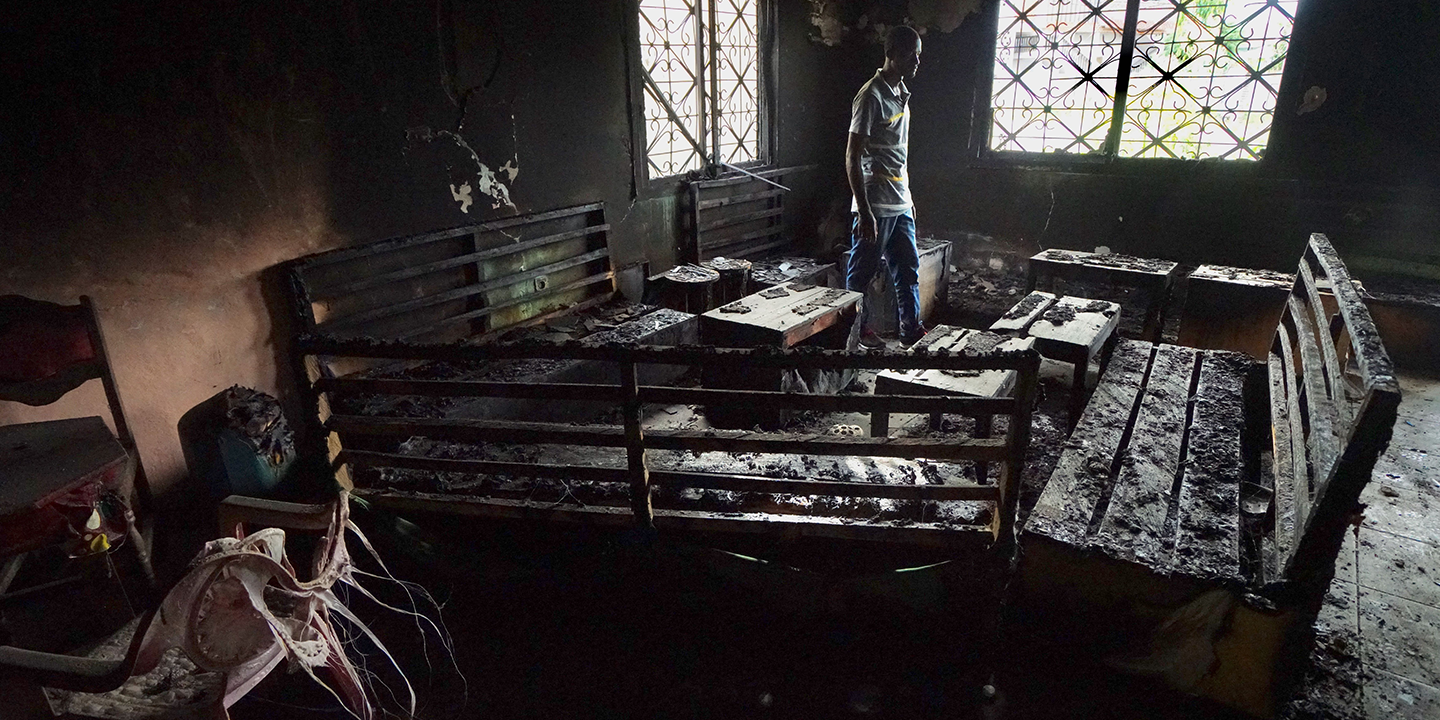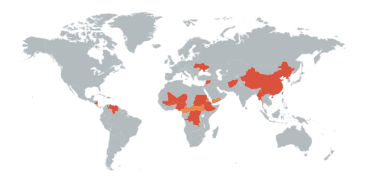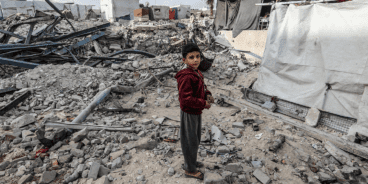

Cameroon: Multilateral action is urgently needed
To Permanent Representatives of Member and Observer States of the United Nations (UN) Human Rights Council (Geneva, Switzerland)
Excellencies,
We, the undersigned civil society organisations, remain deeply concerned over ongoing grave human rights violations and abuses in Cameroon. We reiterate the concerns expressed in a letter sent to your delegation and others ahead of the Human Rights Council’s 47th session. We urge your delegation to support multilateral action to address Cameroon’s human rights crisis, at a minimum through a joint oral statement to the Council’s 48th session (13 September-8 October 2021).
Cameroon is among the human rights crises the Council has failed to adequately address. Given the inaction of other bodies (including the African Union and the UN Security Council) and increasing concerns over Cameroon’s low level of engagement with the Office of the UN High Commissioner for Human Rights (OHCHR), it is vital for the Council to send a clear message by stepping up its scrutiny and engagement.
The Council’s 48th session will provide States with more opportunities to raise concerns about human rights violations and abuses in country-specific contexts, in particular given the resumption of general debates. As outlined in the May 2021 civil society letter (see below), a joint oral statement should include benchmarks for progress, which, if fulfilled, will constitute a path for Cameroon to improve its situation. If these benchmarks remain unfulfilled, then the statement will pave the way for more formal Council action, including, but not limited to, a resolution establishing an investigative and accountability mechanism.
We thank you for your attention and stand ready to provide your delegation with further information as required.
Sincerely,
1. AfricanDefenders (Pan-African Human Rights Defenders Network)
2. CIVICUS
3. Commonwealth Human Rights Initiative (CHRI)
4. DefendDefenders (East and Horn of Africa Human Rights Defenders Project)
5. Franciscans International
6. Global Centre for the Responsibility to Protect
7. Human Rights Watch
8. West African Human Rights Defenders Network / Réseau Ouest Africain des Défenseurs des
Droits Humains (ROADDH/WAHRDN)
TO PERMANENT REPRESENTATIVES OF MEMBER AND OBSERVER STATES OF THE UNITED NATIONS (UN) HUMAN RIGHTS COUNCIL (GENEVA, SWITZERLAND)
Excellencies,
We, the undersigned civil society organisations, are deeply concerned over ongoing grave human rights violations and abuses in Cameroon. Ahead of the Human Rights Council’s (“HRC” or “Council”) 47th session (21 June-15 July 2021), we urge your delegation to support multilateral action to address Cameroon’s human rights crisis in the form of a joint statement to the Council. This statement should include benchmarks for progress, which, if fulfilled, will constitute a path for Cameroon to improve its situation. If these benchmarks remain unfulfilled, then the joint statement will pave the way for more formal Council action, including, but not limited to, a resolution establishing an investigative and accountability mechanism.
Over the last four years, civil society organisations have called on the Government of Cameroon, armed separatists, and other non-state actors to bring violations and abuses to an end. Given Cameroonian institutions’ failure to deliver justice and accountability, civil society has also called on African and international human rights bodies and mechanisms to investigate, monitor, and publicly report on Cameroon’s situation.
Enhanced attention to Cameroon, on the one hand, and dialogue and cooperation, on the other, are not mutually exclusive but rather mutually reinforcing. They serve the same objective: helping the Cameroonian Government to bring violations to an end, ensure justice and accountability, and fulfil its human rights obligations. In this regard, the establishment of cooperation between the Office of the UN High Commissioner for Human Rights (OHCHR) and the Government of Cameroon, following High Commissioner Michelle Bachelet’s May 2019 visit to Yaoundé, and building on the capacity of the OHCHR Regional Office for Central Africa (CARO), is a step forward.
However, since a group of 39 States delivered a joint oral statement to the HRC during its 40th session (March 2019), and despite the High Commissioner’s visit, the holding of a national dialogue, and OHCHR’s field presence, violations have continued unabated. Some of the violations and abuses committed by Government forces and non-state armed groups may amount to crimes under international law. Impunity remains the norm.
In the English-speaking North-West and South-West regions, abuses by armed separatists and Government forces continue to claim lives and affect people’s safety, human rights, and livelihoods. The grievances that gave rise to the “Anglophone crisis” remain unaddressed. In the Far North, the armed group Boko Haram continues to commit abuses against the civilian population. Security forces have also committed serious human rights violations when responding to security threats. In the rest of the country, Cameroonian authorities have intensified their crackdown on political opposition members and supporters, demonstrators, media professionals, and independent civil society actors, including through harassment, threats, arbitrary arrests, and detentions.
Cameroon is among the human rights crises the Human Rights Council has failed to adequately address. Given other bodies’ (including the African Union (AU) and the UN Security Council) inaction, it is all the more vital for the HRC to send a clear message by stepping up its scrutiny and engagement.
We believe that further multilateral action is needed. At the Council’s 47th session, we urge Member and Observer States to, at a minimum, support a joint statement. This statement should make clear that should Cameroon fail to take concrete steps to investigate human rights violations and abuses, ensure accountability, and improve its human rights situation, more formal action will follow in the form of a resolution establishing an investigative and accountability mechanism.
A joint statement should:
-
-
- Address violations and abuses committed by Government forces and non-state armed groups in the North-West, South-West, Far North, and other regions of Cameroon, and urge all parties to immediately bring these violations and abuses to an end;
- Remind the Cameroonian Government of its primary responsibility to protect its population from crimes and human rights violations;
- Urge the Cameroonian Government, in cooperation with OHCHR and Cameroonian human rights groups, to design and implement a road map for human rights reforms and accountability with a view to preventing further human rights violations and abuses and ensuring accountability as part of a holistic effort to settle the crisis in the country, in particular in the North-West and South-West regions and the armed conflict in the Far North region;
- In addition to designing and implementing a road map for reforms and accountability, outline concrete benchmarks to be fulfilled by the Government of Cameroon to ensure demonstrable progress on human rights, including by:
- putting an immediate end to violations committed against members and supporters of the opposition, media professionals and outlets, demonstrators, and members of civil society, including lawyers, union leaders, teachers, and human rights defenders and organisations;
- releasing prisoners of conscience;
- fully respecting all Cameroonian citizens’ human rights, including their rights to freedoms of opinion and expression, peaceful assembly, and association, as well as the right to life, liberty and security of person;
- fully cooperating with OHCHR, including granting it unhindered access to the North-West and South-West regions to conduct human rights investigations, monitoring, and reporting;
- fully cooperating with the Council and its mechanisms, including granting access to special procedure mandate-holders, in line with Cameroon’s Council membership obligations;
- granting unrestricted access to humanitarian aid and human rights organisations and workers, including restoring access for international non-governmental organisations (NGOs) to report on the human rights situation in the country; and
- engaging with regional bodies and mechanisms, including the African Commission on Human and Peoples’ Rights (ACHPR);
- Encourage the High Commissioner for Human Rights to make the findings of the OHCHR 2019 investigations in the Anglophone regions public, and to provide regular updates to the Council, including by holding inter-sessional briefings or informal conversations with Council Members and Observers. These updates should include information about her engagement with Cameroonian authorities, the situation in the country, and OHCHR’s work in the country;
- Encourage states to enhance their voluntary contributions for OHCHR’s activities, including for the OHCHR Regional Office for Central Africa’s work in Cameroon and Central Africa; and
- Make clear that should Cameroon fail to take concrete steps to improve its situation and ensure demonstrable progress on human rights by the Council’s 48th session (13 September-1 October 2021), more formal Council action will follow, under the appropriate agenda item.
-
We thank you for your attention and stand ready to provide your delegation with further information as required.
Sincerely,
- Africa Call – South Sudan
- AfricanDefenders (Pan-African Human Rights Defenders Network)
- Amnesty International
- Cairo Institute for Human Rights Studies
- CDDH – Benin
- Center for Human Rights Defenders Zimbabwe (CHRDZ)
- CIVICUS
- Club Humanitaire sans Frontières (CHF)
- Commonwealth Human Rights Initiative (CHRI)
- Community Empowerment for Progress Organization (CEPO) – South Sudan
- DefendDefenders (East and Horn of Africa Human Rights Defenders Project)
- Defenders Coalition – Kenya
- Dialogue and Research Institute (DRI) – South Sudan
- Dignity Association – Sierra Leone
- Economic Justice Network Sierra Leone
- Franciscans International
- Global Centre for the Responsibility to Protect
- HAKI Africa
- HRDSNET Uganda Ltd – Human Rights Defenders Solidarity Network
- Human Rights Defenders Network – Sierra Leone
- Human Rights Watch
- Initiative for Plataforma das Organizações Lusófonas dos Direitos Humanos (POLDH)
- International Civil Society Action Network (ICAN)
- International Refugee Rights Initiative
- International Service for Human Rights (ISHR)
- Kenya Human Rights Commission
- National Alliance of Women Lawyers (NAWL) – South Sudan
- Network of the Independent Commission for Human rights in North Africa
- Nouvelle Génération de la Cinématographie Guinéenne (NOGECIG)
- Oasis Network for Community Transformation
- Pan African Lawyers Union
- Partnership for Justice, Lagos – Nigeria
- Protection International – Kenya (PIK)
- Raise The Young Foundation
- REDRESS
- Réseau des Organisations de la Société Civile pour l’Observation et le Suivi des Élections en Guinée (ROSE)
- Southern Africa Human Rights Defenders Network (SAHRDN)
- South Sudan Human Rights Defenders Network (SSHRDN)
- Tanzania Human Rights Defenders Coalition (THRDC)
- The Independent Medico-Legal Unit
- Togolese Human Rights Defenders Coalition / Coalition Togolaise des Défenseurs des Droits Humains (CTDDH)
- Torture Abolition and Survivors Support Coalition International (TASSC)
- West African Human Rights Defenders Network / Réseau Ouest Africain des Défenseurs des Droits Humains (ROADDH/WAHRDN)
- Watch Democracy Grow
- Women’s Centre for Guidance and Legal Awareness (WCGLA) – Egypt
…
- 17 additional organisations join this letter, which brings the total number of signatories to 62. In light of the security environment they face, their name is kept confidential.
Related Content


R2P Monitor, Issue 71, 1 December 2024
